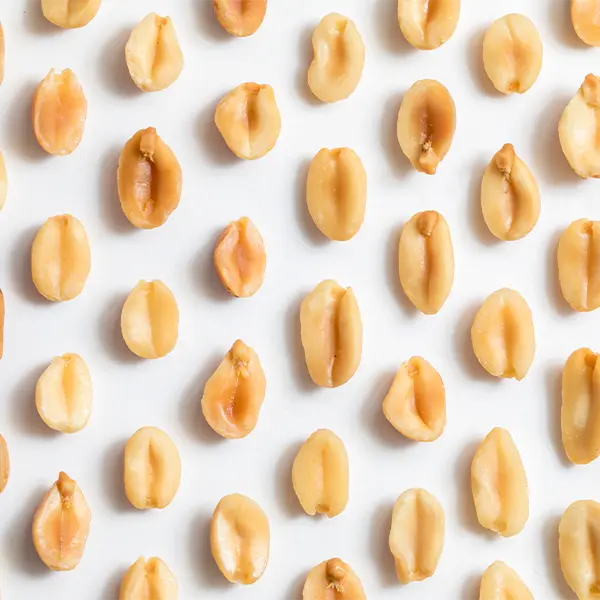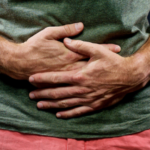As the days tick by towards December, many of us have Christmas festivities and time off work on the mind. But for some men, the countdown is focused on the end of No Nut November. No, these aren’t blokes avoiding communal peanuts at the pub — it’s an annual, Internet-borne challenge which sees men commit to 30 days without ejaculating or “nutting”.
The challenge was once confined to the online forum Reddit but in recent years its popularity has grown moving from memes to mainstream media. The r/nonutnovember community went from 16,500 subscribers in November 2018 to 149,000 in 2024, and the r/nofap community currently has grown to over 1.2 million members since starting on the platform in 2011.
But what exactly does No Nut November entail and are there any benefits of not masturbating for a month?
What is No Nut November?
No Nut November (NNN) is a challenge where participants abstain from ejaculation in November.
The rules of No Nut November (or NNN) are straightforward — no ejaculation of any kind throughout the month of November. The reasons why people choose to partake in the challenge are varied, some citing a limited study on increased testosterone levels post-challenge and others using it to correct a perceived addiction to masturbation.
A recent study into the trend suggests that a greater motivation to quit masturbating was linked to a stronger belief that masturbation has negative health impacts, as well as conservative and religious values, and a lower trust in science.
What is the no fap movement?
The NoFap subreddit describes itself as a porn addiction and compulsive sexual behaviour peer support forum. They believe that while masturbation is healthy in moderation, overdoing it can be a problem. Participants (also called Fapstronauts) regularly partake in challenges to avoid porn and masturbation for a period of time (usually 30 days) and support each other by sharing encouragement and their own experiences. The idea is that by controlling these habits, you can have more energy and motivation for other parts of your life.

Does avoiding masturbation have health benefits?
There is currently no evidence of any health benefits of No Nut November, or any benefits of not masturbating.
Does masturbation lower testosterone levels?
Some fans of No Nut November claim that stopping masturbation boosts testosterone. They often cite one small, unreliable study that found men’s testosterone spiked after abstaining from ejaculation for a week. However, another small study on 34 men indicated that testosterone is actually elevated by masturbation.
Your testosterone levels are unlikely to be a concern unless you’re experiencing testosterone deficiency, which may be due to problems within your testicles, hormone production in the brain, genetic disorders, medical problems, or damage to the testicles.
Avoiding masturbation won’t help with this but chatting to your doctor will.
Does frequent masturbation harm male fertility?
Another common misconception is that regular masturbation is harmful to fertility, which is not the case. The longer period between the ejaculation, the greater the volume of semen and the higher the total number of sperm released, up to a point. Ejaculating daily, or even more frequently, won’t cause any damage.
Rather, it will just decrease the number of sperm in each ejaculate, but over the period of a week, you’ll still make the same number of sperm. In fact, daily ejaculation over a week has been found to improve sperm quality.
Is masturbation good for you?
There’s long been stigma, shame and taboos attached to masturbation with wives’ tales around growing hair on the back of your hands and shrinking your genitals, but masturbation is a healthy, normal, and common part of human sexuality.
2014 research found 72% of Australian men and 42% of Australian women, aged 16 to 69, had masturbated in the past year, while 51% of the men and 24% of the women had masturbated in the previous four weeks.
General health benefits of masturbation include improving sleep, reducing stress, promoting the release of endorphins (chemicals produced by the body to relieve stress and pain), and enhancing self-esteem and body image.
Some research suggests a link between men’s frequency of ejaculation and prostate cancer risk, with one finding that men who ejaculated 21 or more times a month had a 31% lower risk of prostate cancer. However, the accuracy of the participants’ data was limited by recalling and self-reporting their ejaculation habits across their lifetime.
What is blue balls?
“Blue balls” is a slang term for something called epididymal hypertension. This happens when someone gets sexually aroused for a long time but doesn’t have an orgasm or ejaculation. Learn more about blue balls here.
Can you masturbate too much?
There isn’t a normal number of times to masturbate in a day, week, or month. But excessive masturbation can impact your relationships and everyday life. If you’re missing work, school, or important social events or it’s impacting daily activities, these might be signs that you’re masturbating too much.
“I approach it with the same definition that you would substance abuse,” Cit Carney, a psychosexual therapist, says. “It becomes problematic when it impacts aspects of your life, your income, and your relationships.”
“If a guy was masturbating every day for five to 10 minutes and he’s having sex with his girlfriend that night, that might impact being able to reach orgasm, but it’s not an issue. If he’s using it to deal with stress or anxiety, that’s an issue. If someone was logging onto Pornhub at 11pm and masturbating until 4am and having to go to work the next morning and it’s impacting their work, that’s when it’s problematic.”
But is abstaining from masturbation for a month the best way to get a handle on it?
“Abstaining from it won’t hurt you, my concern would be what is the motivation behind it,” Carney explains. “I’ve heard from a number of guys, it’s like I’m stopping because [masturbation] is wrong, I shouldn’t be doing it. If it’s just for fun, you’re raising money, you just want to give it a go or you want to just have a break from it, that’s fine.”
Carney says masturbating less shouldn’t be motivated by feelings of shame.
“If there’s a notion that it’s ‘wrong’ that becomes problematic because [masturbation] is not wrong,” he says. “Through social media and culturally we think that guys don’t experience the same shame as women do around masturbation but it’s really surprising how many guys think they shouldn’t, especially if they’re in a relationship.”
If you’re using masturbation as a coping mechanism or it’s at a stage where it’s impacting other areas of your life, it’s best to chat to a therapist.















